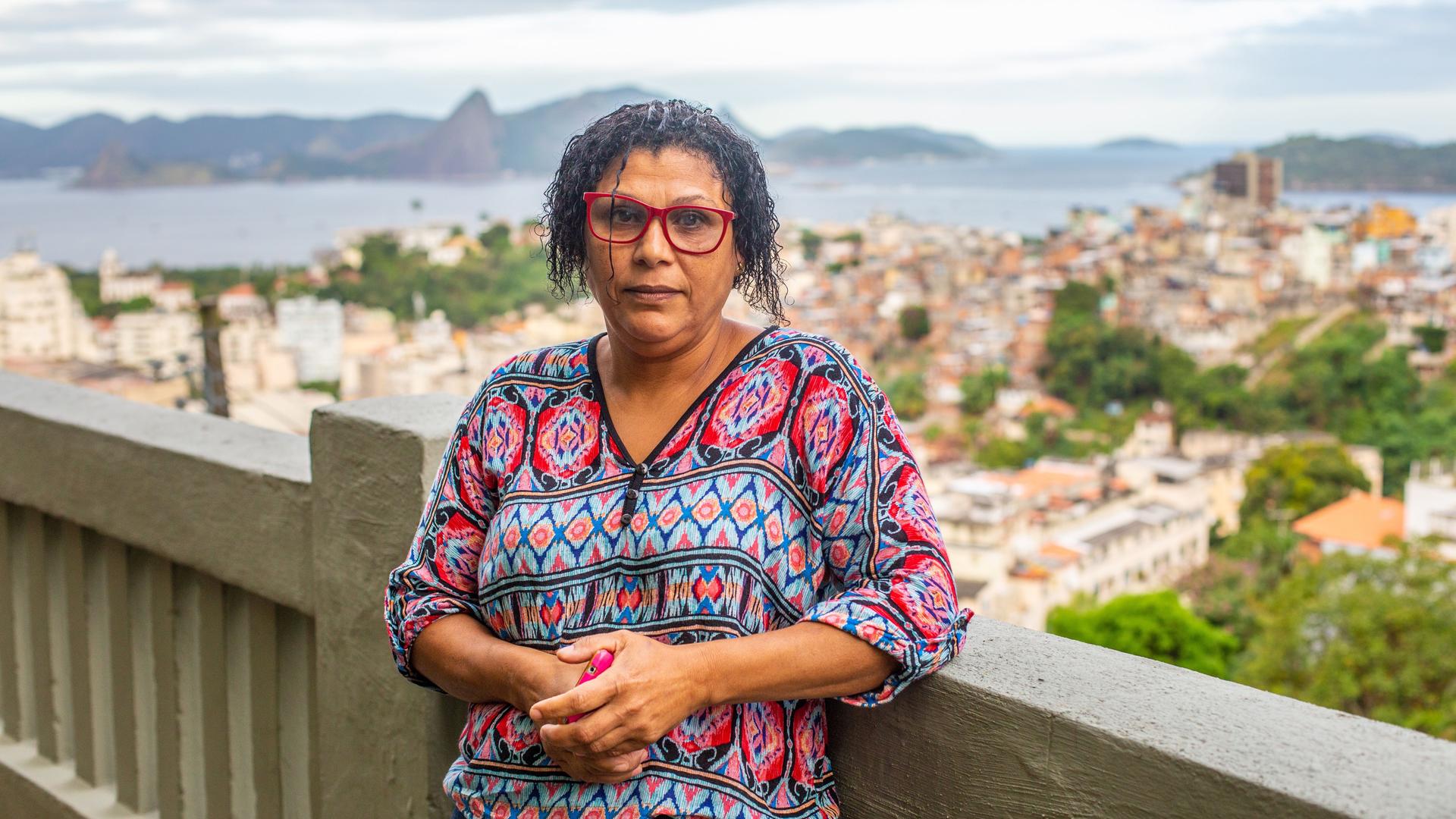Brazil’s domestic workers get help with app
Maria Vera Lucia Terno da Silva, 51, has worked as a domestic employee since she was 19. She thinks that mobile app Laudelina can help domestic employees to enforce their rights.
Creuza Maria Oliveira was just shy of 10 years old when her father passed away. And like many young, black girls from low-income families in Brazil back then, she began working as a maid. She lived with a family and oversaw their child care and cooking and cleaning duties. Then when Oliveira was 12, her mother died, too, eliminating any chances of her return to formal education.
“I went through everything you could imagine: attempted sexual abuse, beatings, carrying things that were too heavy for a 9-year-old,” said Oliveira, now 61, who is the president of the National Federation of Female Domestic Workers (FENATRAD). “At that time, it was normal for children and teenagers to work as domestic employees.”
Domestic workers have long been a staple of Brazilian culture, depicted in historian Gilberto Freyre’s 1933 book, “The Masters and the Slaves,” and as recently as in Anna Muylaert’s critically acclaimed 2015 film, “The Second Mother.” Approximately 7 million people — 1 in every 7 domestic employees worldwide — are employed in the profession in Brazil, according to the International Labor Organization (ILO).
Related: After grisly murder, Kuwait and the Philippines face diplomatic crisis over domestic worker abuse
Like Oliveira, the majority of these workers are black, working-class women, and with minimal formal education. Oliveira has spent her adult life assiduously campaigning to guarantee basic workers’ rights for domestic employees and has been central to mobilization and legislative efforts. The next step in Oliveira’s battle to ensure domestic employees’ rights is a mobile app called Laudelina, which they and their employers can use to make sure they are complying with labor laws.
Named after Laudelina de Campos Melo, the maid who created Brazil’s first domestic employee’s union in 1936, the app features everything from salary and benefits calculators to rights explanations and help in locating the nearest union. The app won Google’s Social Impact Challenge in 2016 shortly after its launch and is now being released nationwide.
Maria Vera Lucia Terno da Silva, a soft-spoken, 51-year-old who has worked as a domestic employee since she was 19, thinks that Laudelina can plug some of the awareness gaps she sees among her friends.

“It’s not every boss who complies with your rights,” she said. Although she has never personally had any trouble, some of Silva’s friends have taken former bosses to court over nonpayment issues. “It’s good to have somewhere to clear up your doubts.”
Household work was the main way for black women to insert themselves into the labor market after Brazil abolished slavery in 1888, according to Carla Marchandeu Conde, a lawyer at FUMEC University whose master’s research examined how domestic employees’ role has shifted in Brazilian society. However, almost a century had elapsed before domestic employees were given their first legal rights, in 1972.
“Domestic workers today are black women who come from less privileged walks of life, often with low literacy levels and without access to a full education,” Conde explained. But, a lack of public services and infrastructure to support a modern family’s needs, she says, continues to reinforce dependency on domestic workers.
“Many families need the help of someone outside the family to make sure things run smoothly within the home,” Conde said. “You don’t see this as much in developed countries, where people are better supported by the government in relation to maternity and children.”
Although children can no longer be hired as domestic employees like Oliveira was, the profession remains symbolic of Brazil’s social and economic inequality. During Brazil’s 2016 impeachment protests, one particular image captured the country’s attention: a white couple marching in green-and-yellow clothing, while an Afro-Brazilian domestic employee trailed behind in a traditional, white uniform, pushing the couple’s children in a stroller.
On a Saturday afternoon in late April, women attending a workshop about how to use Laudelina filled up the tiny courtyard of Rio de Janeiro’s domestic workers’ union. Carli Maria dos Santos, the union’s 64-year-old president, sat up straight and smoothed her bright, orange skirt as she spoke. Like many domestic workers, Santos’s pride in her appearance is a subtle rebuttal to assumptions about working-class appearances.
The app, Santos says, will be helpful for employers as well as employees. “What they often lack is familiarity with the law,” she said. “A friend of mine has said to me for years, ‘You have to open the window to see the world.’ This app is a way to open that window.”
Almost all of the women who attended the workshop were of Oliveira’s generation and have similar stories. Ana Maria Ferreira, 56, with glossy, black microbraids falling over her shoulders, began working as a maid at the age of 8. Santos herself, with glittering grey eyeshadow and brightly colored bangles, began working at the age of 10 and was so frazzled by the time she reached 18 that she had to take sleeping pills in the evenings.
Most domestic employees are unaware of the national union and its local branches, Santos says, and are often too tired or too busy to keep up to date with current affairs. But she is optimistic about the app’s potential to spread awareness: Everyone has smartphones.
Abuses still happen, Santos says, but not with the same violent characteristics that they had when she was young. “These days, most of the reports of abuse that we receive are humiliation,” she said. “It’s hard to get proof — but when we get it, we go to court.”
Livia Zanatta, a legal counsel at gender and justice nongovernmental organization, Themis, which is collaborating with Oliveira in creating and spreading the app, believes that Laudelina will help domestic workers with unscrupulous bosses.
“There’s always this difficulty in enforcing the law in Brazil, as well as this cultural undervaluing of domestic work,” she said. “An app is one more tool for mobilization, one more way for domestic employees to fight for their rights.”
Ciara Long reported from Brazil.
